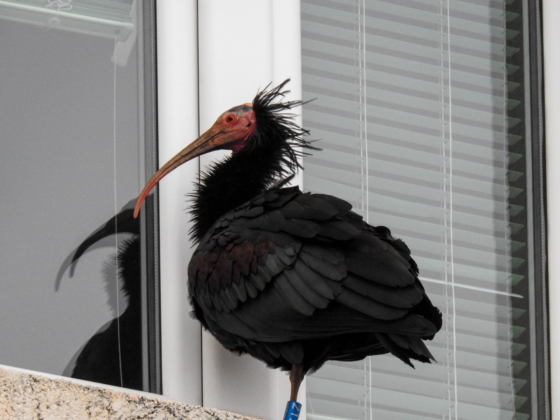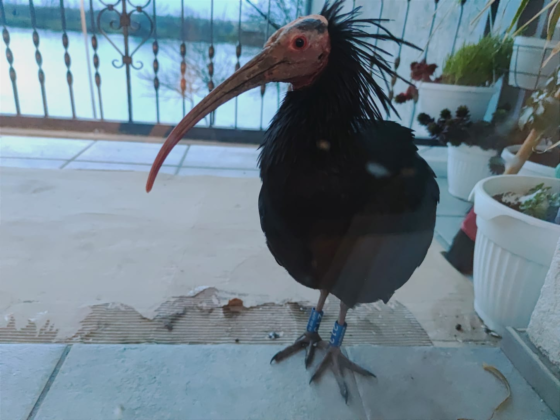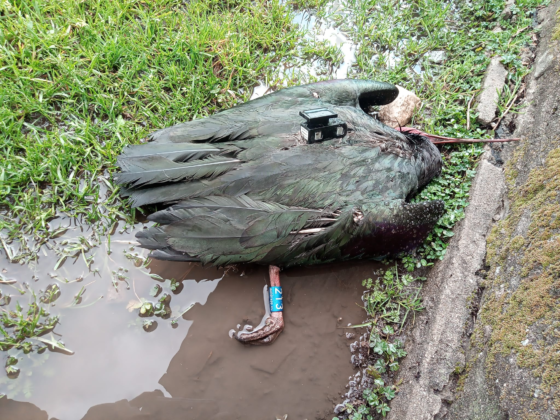The bird was most likely hit on the head by an object, unless it was poisoned, which is why it could have been disoriented and thus could collide with an obstacle. We hope that the samples will be sent for toxicology analysis to clarify whether poisoning could have led to the death of the Northern Bald Ibis.
Gipsy, a female Northern Bald Ibis, died violently in the Neretva delta on March 5th. The bird belongs to a species which is extinct in Europe but is being reintroduced in Central Europe. This individual appeared in Croatia in December last year and since then has been staying in the country. According to the opinion of the Croatian Veterinary Institute, the relevant institution that conducted the autopsy, “she most likely died as a result of a traumatic brain injury caused by blunt trauma to the occipital part of the head.” So, the bird was most likely hit on the head by an object, unless it was poisoned, which is why it could have been disoriented and thus could collide with an obstacle. In its findings, the Croatian Veterinary Institute noted that poisoning of the animal cannot be ruled out and recommended that a further toxicological analysis be carried out in an authorized toxicological laboratory. We hope that the samples will be sent for toxicology analysis to clarify whether poisoning could have led to the death of the Northern Bald Ibis. Since the discovery of the bird carcass, the Biom Association has appealed to several institutions to send samples for toxicological analysis. This is especially important because dead cows were found nearby, for which, according to our knowledge, a toxicological analysis has not yet been performed.








